Texas Beyond History (TBH) began as a partnership between the Texas Archeological Research Laboratory (TARL) and the Texas Archeological Society (TAS). Since the website's inception in 2001, many other partner organizations have become instrumental to the success of the project.
Legacy Partners are those that lent critical support for TBH in the website's earlier days. Sustaining Partners are those that continue to generously give to TBH today, allowing TBH add new content and revitilize existing content. Institutional Partners provide content, matching grants and sponsorships. Underwriters are foundations, individuals, and agencies, and organizations who have provided significant one-time donations or grants. Sponsors are organizations who have funded TBH exhibits as part of education and outreach efforts. Each TBH Partner, Underwriter, and Sponsor has a vested interest in preserving and sharing Texas' cultural heritage.
Sustaining Partners
Sustaining Partner organizations keep the Texas Beyond History engines running. These organizations include private consulting firms with cultural resource offices, state and regional archeological societies and associations, and non-profit organizations which regularly provide TBH with resources or content. Funds from sustaining partners are used to create new content and refresh the staggering amount of existing content, match grants and donations, and help assure TBH has essential funding for staff.

Acacia Heritage Consulting is a HUB-certified, woman-owned small business (WBE/DBE) started in 2018. Acacia’s core mission is to connect people and places. We deliver well-researched archeological, historical, and ethnographic studies designed for regulatory review and management under local, state, and federal preservation statutes. We also offer consulting and expertise to promote economic development through heritage awareness and preservation. This includes helping to develop historic sites and heritage tourism programming.
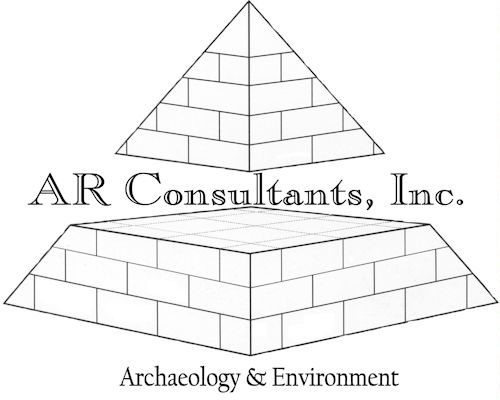
AR Consultants was founded in 1977 when Dr. S. Alan Skinner was on the faculty of the Anthropology Department at Southern Methodist University. AR Consultants continues its primary focus on cultural resource surveys and site evaluations using a team that practices hands-on management. Experience consists of employees that have experience through most of the contiguous United States, and some overseas. Recently, our interests include Colorado, Kansas, Louisiana, Oklahoma and, of course, Texas. We continue to carryout small projects and regularly work with engineering firms, electric cooperatives, land developers, cities, and other governmental agencies throughout the above states. We are certified to work in New Mexico. We provide quality state of the art investigations in the cultural resources and environmental fields and continue to offer quick response investigations. We have had considerable success coordinating with local, state, and federal review agencies.

Archeological & Environmental Consultants is a small firm with offices in Austin and Pittsburg, Texas. The firm's lead researchers have been involved in all aspects of cultural resources management (CRM) and archeological projects since the mid-1970s. They specialize in the archeology of the Caddoan area (northeast Texas, southwest Arkansas, northwest Louisiana, and eastern Oklahoma), CRM planning, paleoenvironmental studies, and consultation with Native American groups (Historic Preservation and NAGPRA grants). For information contact Timothy K. Perttula (Austin) or Bo Nelson (Pittsburg, TX).

The Council of Texas Archeologists is a nonprofit voluntary organization which exists for the purpose of maintaining and promoting the goals of professional archeology in Texas. These include the promotion and coordination of communication and cooperation within the archeological community and the ethnic groups and segments of society we study, the preservation and conservation of the cultural resources of Texas, and the promotion and dissemination of information which enhances public awareness of the limited and nonrenewable nature of our cultural resources.

Founded in 2005, Goshawk Environmental Consulting is a small Central Texas-based firm providing environmental and archaeological consulting services to a wide range of clients across Texas, Oklahoma, and New Mexico. We strive to provide comprehensive and high quality work, both to protect natural and cultural resources, and to limit complications in the permitting and regulatory processes for our clients.

The Hill Country Archeological Association (HCAA) is a group of avocational and professional archeologists working together to study and preserve the Texas Hill Country’s prehistoric and historical heritage and to educate the public about archeology.

The Houston Archeological Society (HAS) is a non-profit organization that serves the professional, student, and avocational archeological community of Houston. The HAS offers research, historical property (prehistoric and historic) site assessments, archeological surveys, excavation opportunities, education and outreach programs, and research publications. The HAS was formed in 1959 by a small group of individuals with an interest in archeology, and the history of the early inhabitants and settlers of Texas, especially those occupying the Upper Texas Gulf Coast.

The Integrated Environmental Solutions (IES) is a HUB-certified woman-owned small business (SBE/WBE/DBE) established in 2003 that specializes in providing natural and cultural resources professional consulting services. IES’s core mission is to provide a client-centered approach to environmental regulatory compliance and natural and cultural resources management that allows our clients to focus on their jobs while IES focuses on environmental laws and requirements. With offices in McKinney, Denton, and Waco, and the largest permanent staff in North Central Texas, IES is diffuse across Texas and has the in-house capabilities for archeological, architectural, and heritage-based consulting services, as well as Clean Water Act permitting, waters of the U.S delineations, protected species habitat evaluations, large-scale tree surveys, vegetation mapping, and National Environmental Policy Act analyses and documentation. IES project experience extends throughout Texas as well as Oklahoma, Arkansas, and Mississipi.

The Llano Uplift Archeological Society (LUAS) was organized by people who are interested in the protection, conservation, and study of historic and prehistoric materials and sites in the Llano Uplift and adjacent areas of the Texas Hill Country. The organization’s primary goals include educating membership, students, and the public, and supporting other groups, researchers, and educators with similar interests. LUAS meetings are free and open to the public.
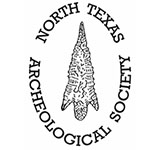
The North Texas Archeological Society (NTAS) is a non-profit organization dedicated to the promotion of archeological research, the preservation of archeological materials and sites, the interpretation and publication of the data pertaining thereto, and educating the general public about archeology. Professional and avocational archeologists gather monthly for member meetings and throughout the year for excavations, special projects, and events. NTAS is a family friendly organization.
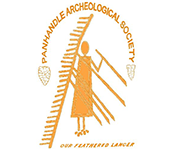
The Panhandle Archaeological Society (PAS) members are dedicated to preserving and protecting the cultural and natural resources of the Texas Panhandle and adjacent areas, and to promoting education and community involvement in the history, prehistory, and natural environment of the Texas Panhandle and adjacent areas. Meetings are held in Amarillo, Texas and are open to the public. Contact them at pan.arc.soc@gmail.com.

Terracon is a 100 percent employee-owned consulting engineering firm providing quality services to clients. Since 1965, Terracon has evolved into a successful multidiscipline firm specializing in environmental, facilities, geotechnical, and materials services. Terracon currently has more than 5,000 employees in more than 175 locations and 42 states nationwide. By combining our national resources with specific local area expertise, we consistently overcome obstacles and deliver the results our clients expect.
Texas Borderland Archaeology is a group of dedicated avocational and professional archaeologists dedicated to preserving Texas’ past through the careful excavating and documentation of endangered sites and by working with and promoting respectful and mutual beneficial relationships with collectors to further document Texas prehistory.
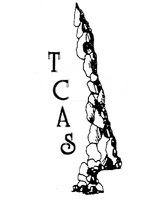
The Travis County Archeological Society is made up of individuals committed to understanding the Texas past through the study of the material evidence that people left behind. The Society was founded in 1959 to encourage the archeological education of the membership and the public through the conservation, scientific study, interpretation, and publication of evidence of prehistory and history, especially in Travis County and vicinity.
Institutional Partners
Institutional Partner organizations support TBH by providing content, matching grants, sponsorships, and other resources.
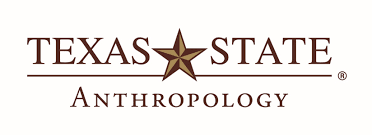
The Department of Anthropology at Texas State University offers Bachelors and Masters degrees in anthropology with programs in archaeology, cultural anthropology, and biological anthropology as well as a doctorate degree in applied anthropology. All anthropology students receive three-field training and graduate students specialize in Archaeology, Cultural Anthropology, or Biological Anthropology. In addition to an internship program, the Department offers a variety of field opportunities in Texas and abroad for study and research in archaeology, cultural anthropology, and biological anthropology. The growing research and training program in Texas archaeology includes the Center for Archaeological Studies, providing students with applied research experience.

The Texas Historical Commission (THC) is the state agency for historic preservation. THC staff consult with citizens and organizations to preserve Texas' architectural, archeological and cultural landmarks. The agency is recognized nationally for its preservation programs. The THC Archeology Division works to identify, protect, and preserve Texas' irreplaceable archeological heritage. Using a regional approach, archeologistsand staff participate in a variety of activities to support this mission. As a TBH partner, THC archeologists are major content contributors to the website. Grant funds from the THC's Texas Preservation Trust Fund have also helped support the website. Discover places important to Texas history with the THC's Texas Historic Sites Atlas.
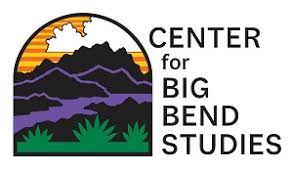
The Center for Big Bend Studies (CBBS) was established in 1987 by Sul Ross State University to support and promote interdisciplinary activities relating to the cultural and historical development of the Trans‑Pecos region of Texas and north-central Mexico. The Center provides educational opportunities to university students, the public, and outside researchers, and is committed to the recovery, protection, and sharing of this region's rich cultural legacy through dynamic programs involving research, education, public outreach, and publication. The Center conducts archeological and historical research and maintains a cultural resources management program. CBBS archeologists also carry out research on private ranches of the region. Most of these efforts are funded through the Trans-Pecos Archaeological Program (TAP), an ongoing regional research program of unprecedented scale.
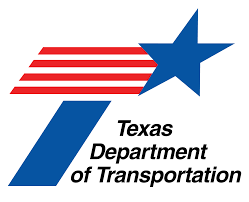
The Environmental Affairs Division of the Texas Department of Transportation (TxDOT) coordinates the agency's cultural resource management program. As new highways and bridges are built and old ones expanded, TxDOT archeologists and historians make sure that important cultural resources are identified and evaluated prior to construction. This work has led to major scientific excavations at important prehistoric and historic sites across Texas. As a TBH partner, TxDOT is helping to create exhibits and coordinated lesson plans that highlight some of the results of TxDOT-sponsored investigations.
Legacy Partners
Legacy Partners are organizations which provided essential support in earlier days of TBH.
- Texas Archeological Society
- Amistad National Recreation Area, National Park Service
- Texas Parks and Wildlife Department
- Briscoe Center for American History, UT Austin
- Department of Anthropology, UT Austin
- Shumla Archaeological and Education Center
- Department of Anthropology, Texas A&M University
- Texas Education Agency
- Center for Archaeological Research, Department of Anthropology, UT San Antonio
- Louisiana Division of Archaeology
- Southern Texas Archaeological Association
Underwriters
Underwriters are foundations, individuals, agencies, and other organizations who have provided significant one-time donations or grants.
Startup funding for Texas Beyond History was provided by:
- Texas Archeological Society
- Texas Archeological Research Laboratory
- Lende Foundation
- Texas Historical Foundation
- College of Liberal Arts, UT Austin
- Potts and Sibley Foundation
- Amistad National Recreation Area, National Park Service
- Texas Alliance for Public Archeology
Support has also been provided by:
- Texas Preservation Trust Fund, Texas Historical Commission (5 grants)
- Cynthia and George Mitchell Foundation (4 grants)
- Meredith Dreiss
- National Endowment for the Humanities (3-year grant)
- Temple-Inland Foundation (2 grants)
- Summerfield G. Roberts Foundation (2 grants)
- Elton and Kerza Prewitt (honoring Drs. Dee Ann Story and Edward Jelks)
- May and Jim Schmidt (honoring Skip Kennedy)
- Dee Ann Story (honoring William P. Newcomb)
- South Texas Archaeological Association
- Houston Endowment
- XTO Energy
- Center for American History (UT Austin)
- Archeological & Environmental Consultants, LLC.
- Dian Graves Owen Foundation
- Harold Courson Family
- Coypu Foundation
- Clifton Caldwell
- E. Thomas Miller
- Potts-Sibley Foundation
- Texas Army National Guard
- Texas Council of Social Studies
- David Russell Mear Memorial Fund
- Dr. and Mrs. Warren Whitlow
- William P. Clements Foundation
- Educational Foundation of America
- Travis County Historical Commission
- Friends of TARL
- Eric Schroeder
- Chris Dayton
Additional financial support has come from more than 200 individuals across the state, demonstrating the website's wide appeal. Many individuals, particularly members of the Texas Archeological Society and the Council of Texas Archeologists, have contributed repeatedly. This continued support and interest in the success of TBH is gratefully acknowledged.
Sponsors
Sponsors are organizations who have funded TBH exhibits as part of education and outreach efforts, to get their work from the dirt to the public eye. Like Sustaining Partners, Sponsors help pay the TBH bills.
- Prewitt and Associates, Inc. on behalf of Texas Department of Transportation
- Prewitt and Associates, Inc. on behalf of North American Coal Corporation-Sabine Mine
- Prewitt and Associates, Inc. on behalf of U.S. Army Corps of Engineers, Fort Worth District
- TRC Environmental Corportation on behalf of Bureau of Land Management
- TRC Environmental Corportation on behalf of Texas Department of Transportation
- SWCA Environmental Consultants on behalf of Hyatt Regency Lost Pines Resort and Spa
- Cox|McLain Environmental Consulting, Inc. on behalf of North American Coal Corporation
- National Park Service
- Stephen F. Austin University
- USDA-Natural Resources Conservation Service
- County of Nacogdoches, Texas